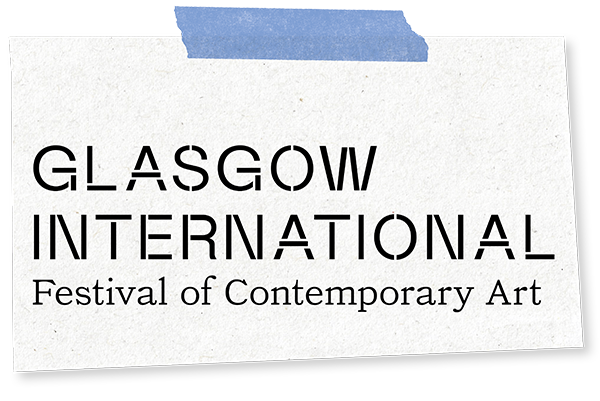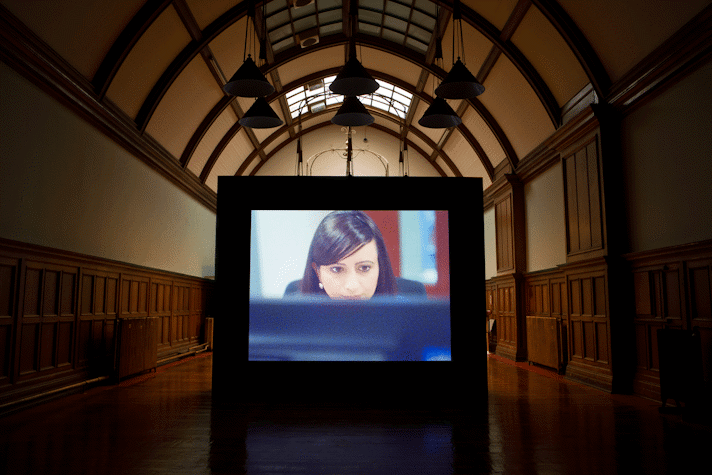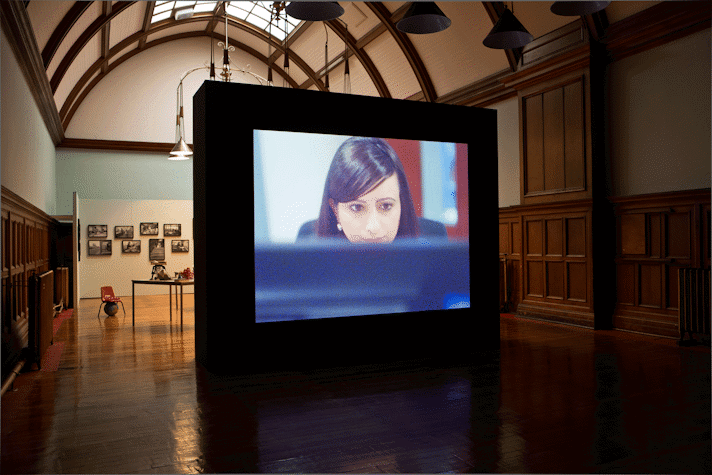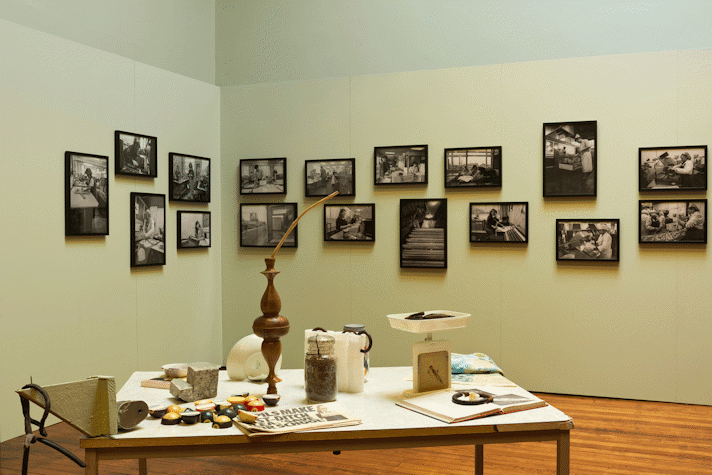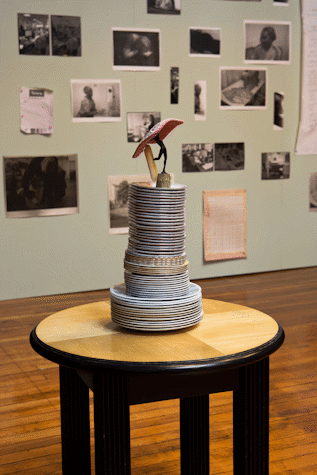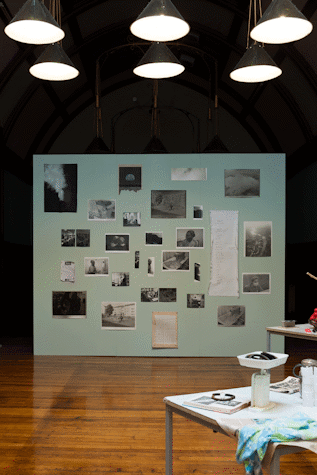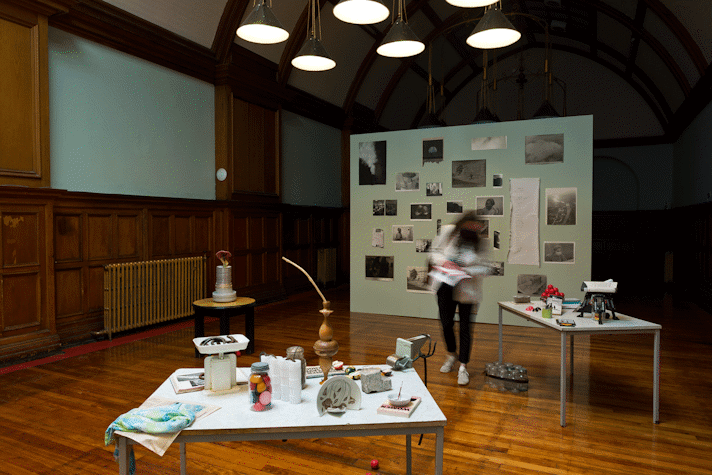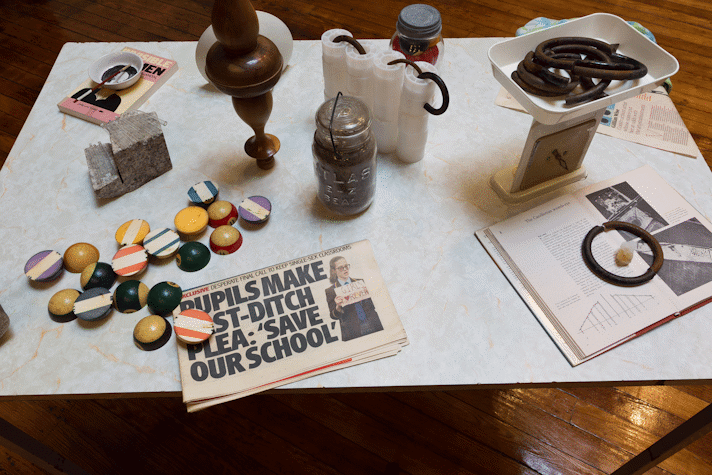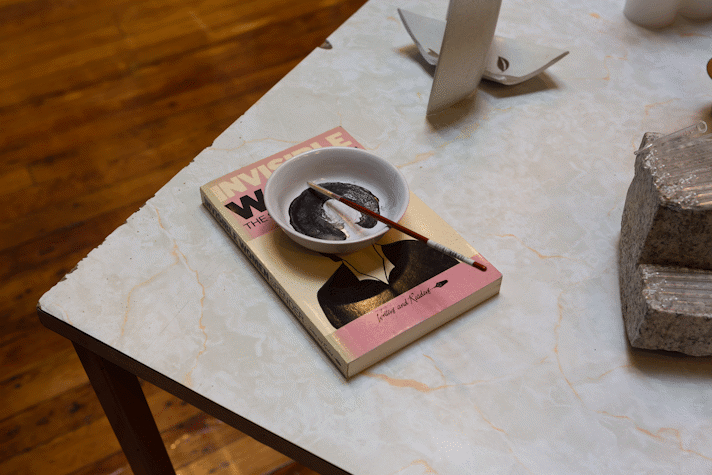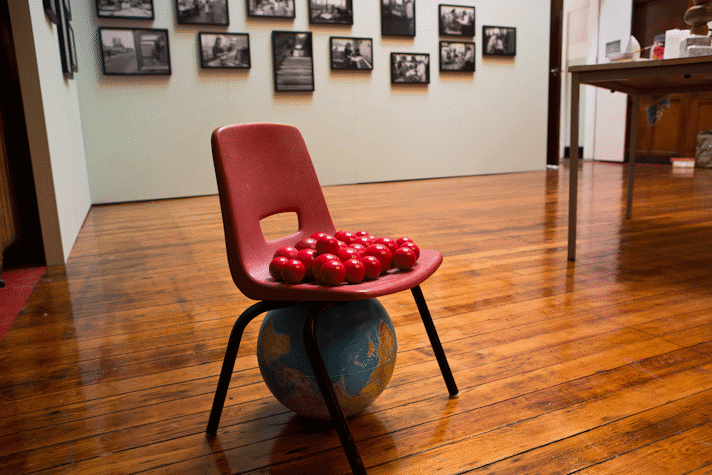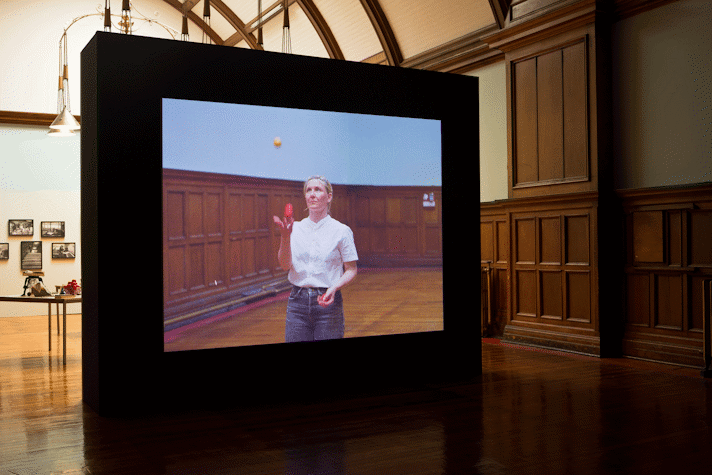Home Economics
Chapter Thirteen at The Pearce Institute
Chapter Thirteen presented an exhibition that focused a close lens on women at work in Govan, before and during COVID-19. Home Economics drew attention to feminist economic theory, considering the gender disparities in waged and unpaid labour that underpins society. The exhibition included photographs by Franki Raffles from 1989, archival material related to women working in local shipyards and Surplus, a new project by Margaret Salmon that generated – in the artist’s words – ‘an emotive, intuitive discussion of value, production and hope’ with the audience.
Produced over the last two years, Surplus was a presentation of objects, photographs and a 35mm film, Icarus (after Amelia), that reflected on narratives of gender, race, class and labour in contemporary Britain. The film was produced through a long process of conversation, observation and creative collaboration with people including musician Tracyanne Campbell, Professor Sara Cantillon, writer Maria Fusco and workers from local businesses and social enterprises including Govan HELP, Morris & Spottiswood and Starter Packs Glasgow.
Curated by Kirsteen Macdonald
Listen to filmmaker Margaret Salmon and curator Kirsteen Macdonald discuss how feminist economics was the starting point for their exhibition Home Economics which centres around Margaret’s new film Icarus (After Amelia).
Supported by Glasgow International. With thanks to University of St. Andrews Libraries and Museums and University of Glasgow Library
